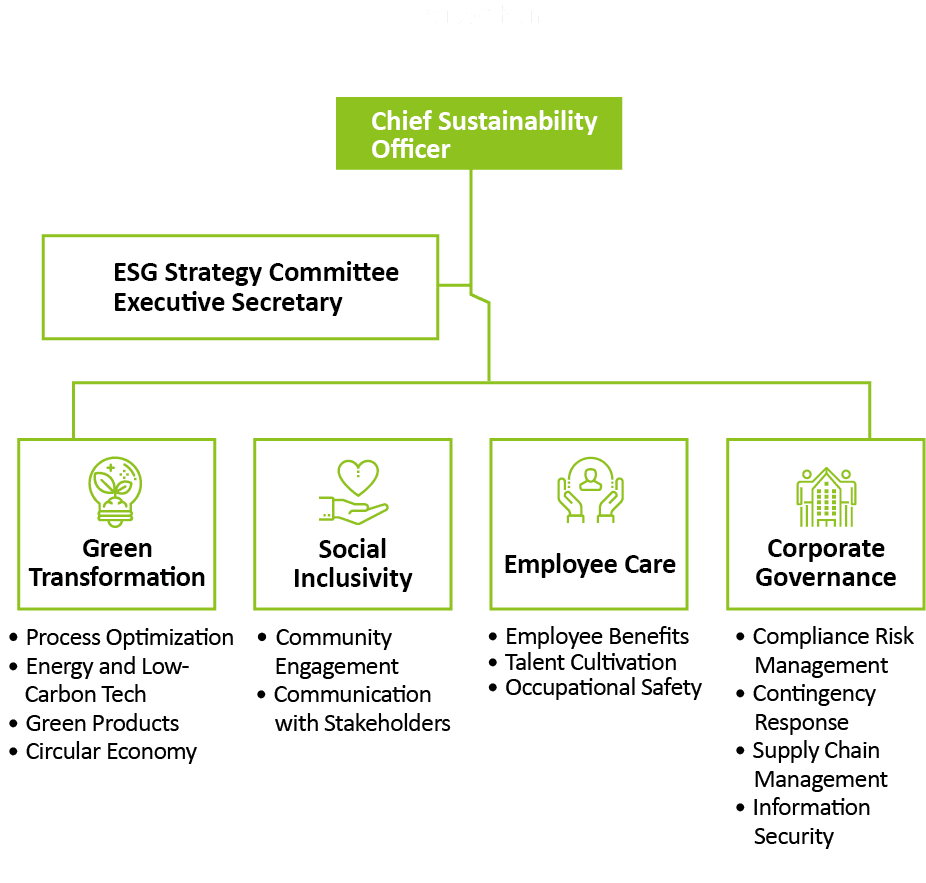We are committed to establishing a strong corporate governance system, complying with laws and regulations at all of our locations, and implementing honest and ethical business practices. We are committed to building a corporate culture based on integrity and accountability. We will continue to implement the highest standards of business integrity at the operational level while formulating an effective governance mechanism to fulfill LCY's social responsibilities.
To this end, we have established the ESG Sustainability Strategy Committee (ESG SSC), as well as the four key cross-functional working groups that fall under the committee: Green Transformation, Social Inclusivity, Employee Care, and Corporate Governance. These working groups bring together teams from sales, R&D, and manufacturing sites to collaborate on carbon reduction targets to mitigate climate risks. The ESG SSC has set mid-term targets to reduce carbon emissions by 30% by 2030 and long-term targets to achieve net-zero emissions by 2050. These targets have been approved by the Board of Directors. The ESG SSC remains committed to advancing green transformation and will consistently refine and evaluate ESG issues and strategies as part of its ongoing progress.
